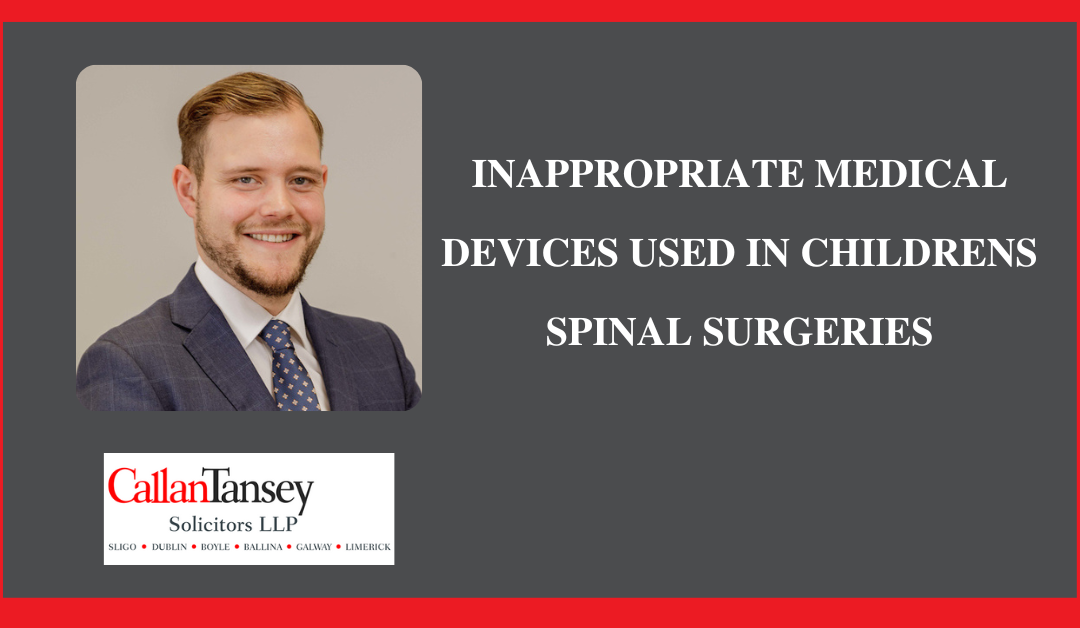Medical devices play a critical role in modern healthcare, however patient safety should always remain the top priority in their use. It is one thing when a medical device malfunctions or does not have the desired effect on the patient, but the use of inappropriate devices for purposes outside their design, in surgery on a child, is another far more serious matter altogether. Here Johan Verbruggen, from our Galway Office, addresses revelations about surgical procedures in one of Ireland’s leading paediatric hospitals.
Recent media reports have raised concerns about spinal surgeries performed on children at Temple Street Children’s Hospital (latterly called Children’s Health Ireland at Temple Street) It was revealed that some spina bifida-related surgeries have been suspended for almost a year in circumstances where it is alleged that unlicensed medical devices made with non-medical parts were implanted in children’s spines. The nature and extent of the misuse of devices are yet to be clarified and it is important for the families of those affected and the general public, that a comprehensive investigation is undertaken and detailed findings
It has been reported by The Irish Times that an external review of spinal surgeries is to be carried out by an unnamed consultant after an internal review identified “serious spinal surgical incidents” in the service. The findings of the internal review are not yet made public. Once again, families and patients, in this case children, who have been operated on at this hospital remain in the dark about whether or not their child has been affected. Tragically, it has been reported that one of the children who underwent spinal surgery has died.
These reports are deeply concerning. A surgeon with doubts over their competency being allowed to continue to operate, and the use of non-surgical, untested, and unapproved medical devices in a child’s spinal surgery, represent egregious breaches of trust and confidence. It is not just the duty of the operating surgeon, but also those in charge at the hospital to make sure that competent staff and correct, appropriate devices are available and used.
This unfortunately is not the first time that patients were not informed of internal hospital management concerns about a surgeon’s competence before surgery was performed, and the consequences have been tragic. We have seen more than once, the tremendous hurt wrought by revelations that dangerous practices that have injured or killed patients, were known to hospital management months or even years earlier, but nothing was done to remove the danger. In the Shane Banks case in Galway serious concerns about a surgeon were known to hospital management months or even years earlier, but not everything was done to protect patients.


